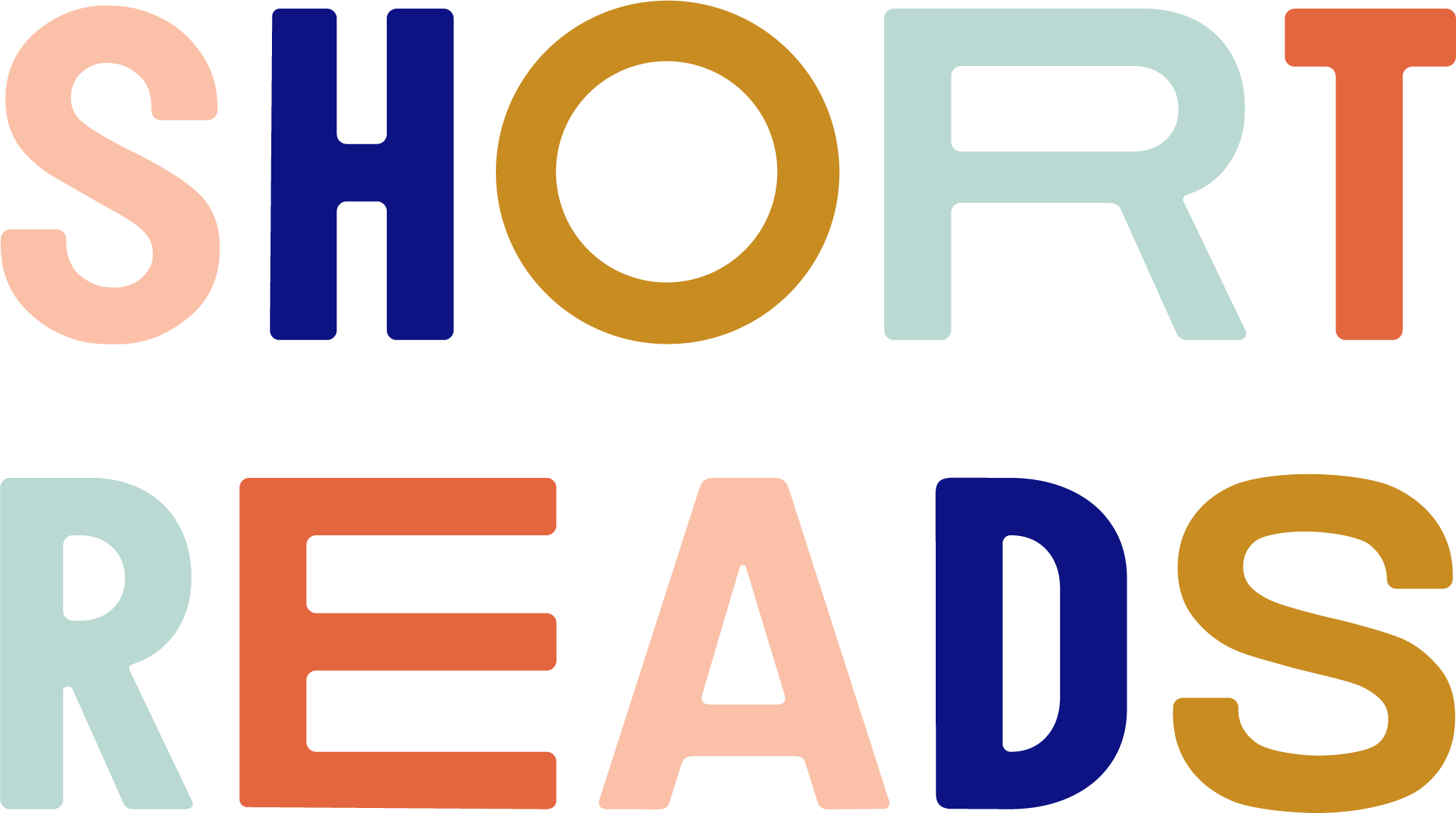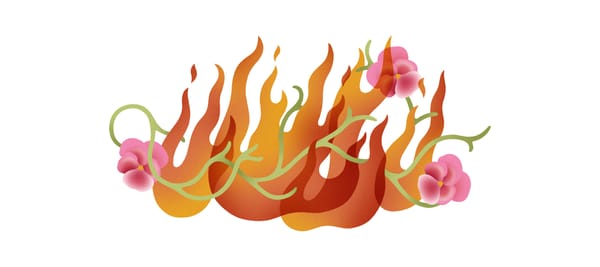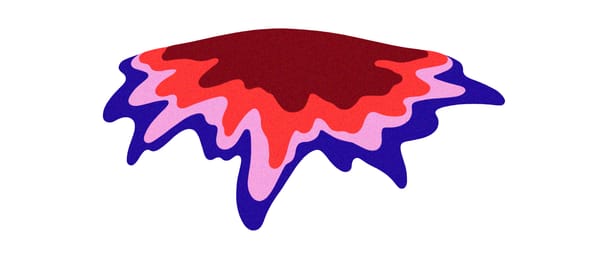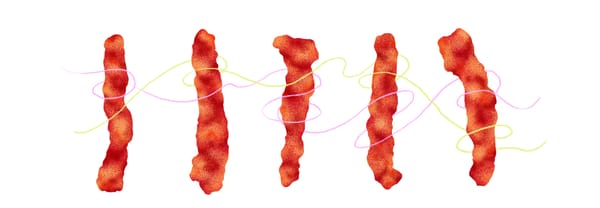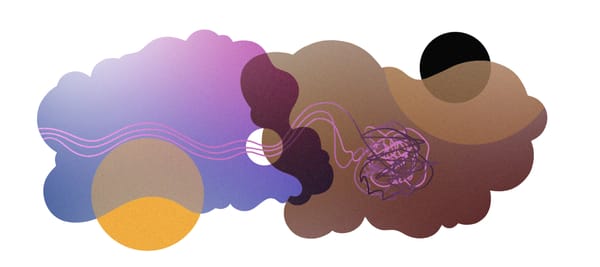Galactagogues
by Anjoli Roy | A dictionary is a whole universe.
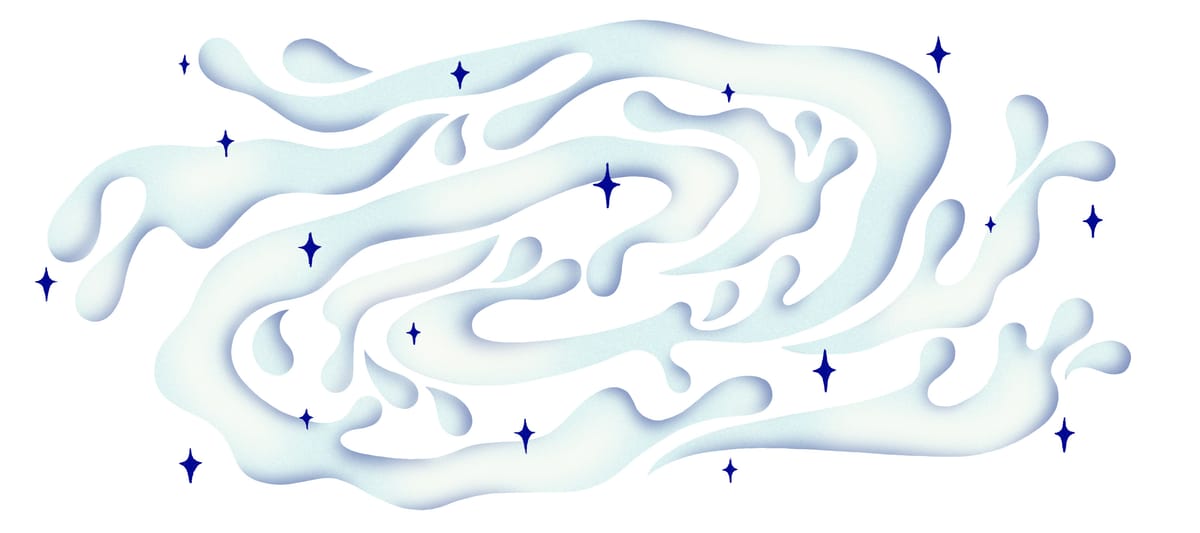
Look for the words inside the word. Look for the words you know.
This is what I tell my students when they come across a word they haven’t seen before. I want them to peel back the skin, trace a word’s meaning through its penny-scented insides.
Just because you haven’t seen it before doesn’t mean it’s not real.
I want them to try harder. On ungenerous days, I want to flick their phones out of their hands.
I want them to know the wonder of a dictionary, unabridged and heavy. Feel its pages thud open. Find a word wedged amid word cousins. See how each cousin-word constellates the meaning of what you’re looking for. But this is not the era of thumbing through pages. We find our information online. We repeat what we’ve learned on social media. I, too, am guilty of this.
But I still find myself thinking, Can’t they see? A dictionary is a whole universe.
And yet, when my doula asked me if I’d tried “galactagogues” in response to a maybe-pitiful text I sent her about how I was failing at pumping—I was back from parental leave and teaching again and had been catching only slow drops, not enough to sustain my ravenous five-month-old—I sat waiting for her to correct what had to be a typo.
There’s no way that’s a real word, I caught myself thinking.
No correction came. I stared at the word anew.
I see “galacta,” like something out of Star Wars. Something about galaxies. I see “gogue,” which makes me think of “synagogue,” a house of worship.
What in the galaxy-worship was she trying to tell me? Was she saying that, at age forty and parenting my first and likely only child, I ought to thank my lucky stars I got to nurse at all?
I’d had a traumatic birth. My blood volume had to be replaced, after days of labor that ended in C-section and blood dumping on the floor like wastewater. But my partner and I had conceived without intervention.
Some older parents conceive and give birth and never have their milk come in, but I’d been able to nurse my baby. She’d be right, my doula, to tell me I shouldn’t ask for more. I swallowed the knot building in my chest. But that wasn’t her voice, chastising me. It was my own.
Do we always project on others the worst things we think about ourselves?
In the Oxford English Dictionary, I found “galacto-,” a combining form relating to milk. Meanwhile, “-gogue” can indicate an agent that increases the flow or secretion of a substance. “Galactagogue” is, therefore, something that increases the flow or secretion of milk.
The word is real.
My friend Aiko, also a new and lactating parent, shared on Instagram a post from Motherspeak: the Greeks and Romans said the Milky Way came from a goddess squirting her breast milk high into the sky, where it became the stars.
When I reposted the story, a former student of mine who is studying to become a linguist, of all things, a former student who makes my heart sing, responded that, in the ancient Greek, “the words ‘galaxy’ and ‘lactate’ are in fact related.” They pointed through my phone screen all the way up to the Milky Way.
Word roots route. Every piece of dirt turns into sky if you dig long enough.
I was breastfed for only two weeks. My mother drank through the pregnancy and after. Nevertheless, when I’m pumping I try to think about how she nursed me.
“You’re a food source! That’s magic shit!” Aiko said to me on a night I most needed to hear it. New parents travel in packs for a reason.
I think about how I respond best to encouragement.
I think about how, in Hinduism, Vishnu and Lakshmi float on the serpent Shesha in an ocean of milk, a new world waiting to be born from the lotus grown from Vishnu’s navel. In this world, a snake is an island. In this world, a flower grows from a god. In this world, milk is everywhere.
During passing periods, I lock my students out of my classroom and hang a do-not-disturb sign on my door. I smuggle galactagogues into my diet: garlic, leafy greens, fenugreek seed. Oatmeal. Brewer’s yeast. I take Torbangun tinctures right under the tongue. Like a witch, I tell myself with some affection. I turn my classroom into a house of worship. I think of my baby. I turn on my pump. I look out the window, past the clouds and their bright blue skies. And I aim for the stars.
Anjoli Roy is a creative writer who teaches high school in Honolulu. She is at work on three creative nonfiction manuscripts: a speculative text about becoming a parent; a collection about growing up ambiguously brown Bengali and white in Southern California; and a memoir about recovering the story of her freedom-fighter ancestor, Kali Nath Roy. You can find her at anjoliroy.com.
This essay is a Short Reads original.
⚠️ We’re (still) seeking new flash essays for upcoming issues of Short Reads.
Want more like this? Subscribe to Short Reads and get one fresh flash essay—for free—in your inbox every Wednesday.
